Text
One of the funnier things from the Quora Tolkien digests is that, for whatever reasons, I get a lot of answers that are very fixated on Aragorn's descent from Lúthien and will reference Legolas's quote about the line of Lúthien never failing as if Aragorn's accomplishments were entirely attributable to his ancestry and nobody in the houses of Elros or Isildur or Anárion ever failed at anything or were just kind of shitty.
It feels almost unsporting to point out Pharazôn failing so hard he got his kingdom eternally sunk into the sea, so I'll settle for Arvedui of Arthedain, who definitely failed at several things that contributed to his death. There's Eärnur of Gondor, who rode into Minas Morgul to demand single combat with a being prophesied to never be killed by a man and was never seen again. There's the super racist Castamir who kickstarted (and ultimately lost) the Gondorian civil war that devastated Osgiliath.
Oh, and for the "just kind of shitty" contingent, there's Ar-Gimilzôr, an oppressor who forced his wife to marry him despite her unwillingness, along with Herucalmo, who ruled through the authority of his wife Tar-Vanimeldë and upon her death, seized the throne from his own son. Tar-Ancalimë's husband Hallacar (who tried to outmaneuver her with dubious success at best) sucked too, along with her cousin Soronto (who tried to either supplant her as heir or succeed her and achieved neither).
Descent from Elros grants stature and abilities of varying kinds to his descendants. It does not grant success or virtue, though.
31 notes
·
View notes
Text
A harsh truth but a good one to remember.
Always an important reminder.
We don't own our favorite characters.
4 notes
·
View notes
Text
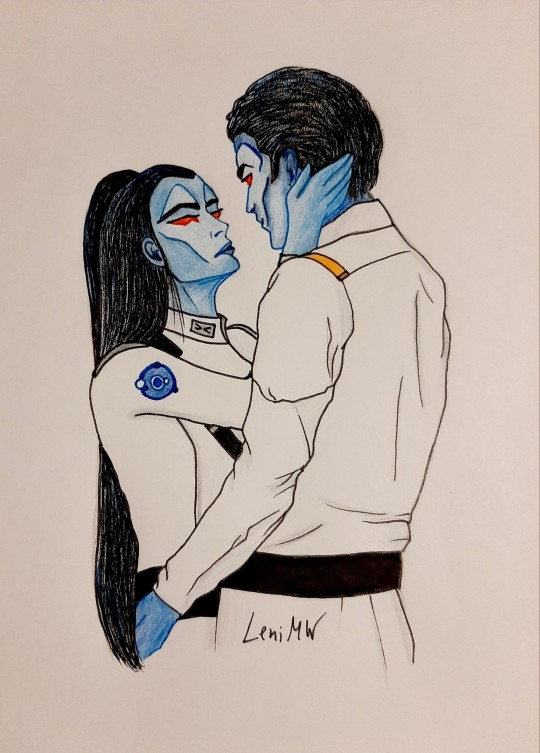
"Someday, Mitth'raw'nuruodo, you’ll overthink and overplan, and it will come crashing down all around you. When that happens, I hope someone is there to lift you back to your feet"
Quote from Thrawn Treason, by Timothy Zahn
88 notes
·
View notes
Text
I continue to be on Senator Xiono's side over Hera's which is a REALLY frustrating position to be in.
Hera, you cannot tell Xiono that he isn't "seeing" the problem when you are literally SHOWING HIM NOTHING. You HAVE nothing to show, so how the FUCK could he see what isn't there? He's not omniscient, and if you have no proof of your claims, why SHOULD he believe you? Just because you used to be a Rebel? They've stated that you are personally invested in this mission, you've used Republic resources like six times to go on a mission that is basically just so you can try to find one person you care about and failed six times, you apparently repeatedly disrespect the orders you're given from Republic leadership, so why should Xiono just... trust you?
This is SO frustrating because it makes NO FUCKING SENSE for Hera to be getting all high and mighty about this when Xiono's RIGHT to question her. This would be a way more interesting plot if it wasn't being presented as just "Hera vs. The Asshole Senator" but an actual nuanced storyline where Hera and Xiono are BOTH RIGHT. Thrawn IS out there and he IS a threat, but Xiono is ALSO right to point out that Hera's abusing Republic resources and disrespecting Republic resources for a personal agenda and has no proof of her own claims.
They COULD'VE gone down the route that Hera is so caught up in this mission that she's sort-of losing her perspective and is now reaping the consequences of those choices. Maybe we see a role reversal where it's SABINE who is trying to talk Hera into being more reasonable about it and let Ezra go or something. But noOoOoOoOo we HAVE to have this whole terrible storyline about how the New Republic SUCKS and is basically the Empire by another name and everyone who runs it are IDIOTS or lazy rich assholes who will drive it into the ground in a few years. Individually, some of the New Republic people are okay, but as an organization, it's too flawed and it needed to catch up with the times to keep from falling.
Sound familiar?
293 notes
·
View notes
Text
Three years ago I'd never have believed we would have this much joy!


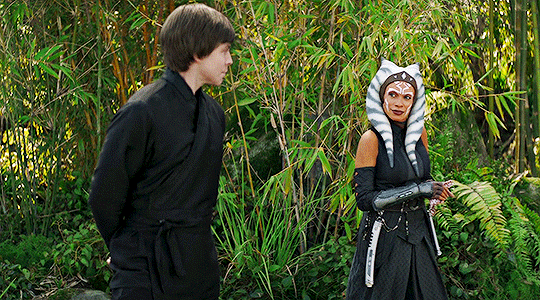
550 notes
·
View notes
Text
Never trust a demon
Especially if they’re from Jackie Chan Adventures
In Season One, Valmont provides the statuesque Shendu with all twelve of his talismans (which Jackie Chan stole at Valmont’s behest) and thus frees him from his petrification. Once free however, Shendu reneges on their previously agreement and refuses to provide Valmont with the lost treasure of Ching Xi Hung.
“Regrettably, Valmont, you did not provide me with the talismans. Jackie Chan did.”
Shendu justifies this reneger through a minor technicality that has no validity-that it was Jackie that obtained the talismans and not Valmont’s men. A ludicrous distinction, seeing as Chan was in Valmont’s employ at the time and was acting as his agent as much as Finn, Ratso or Chow were. This is clearly a pretext to refuse Valmont his rightful reward, indicating that Shendu never planned to give Valmont a single coin. Incidentally, by doing this, Shendu has much in common with another fictional dragon, who’s name shall not be mentioned here.
This first act of betrayal sets the tone for the dishonouring of demonic promises in the series. Ironically enough, the next person to suffer from the reneger of a demonic promise is Shendu himself.
After being destroyed by Jade Chan and being consigned to the Netherworld as a spirit, Shendu is at the mercy of his vengeful siblings. He only manages to forestall their wrath by promising to free them from their prison. While the seven siblings agree, they devise a contingency which traps Shendu within the first mortal he possesses, promising to free him only after he opens all seven of their portals.
Fast forward to several months later, when Shendu and his minions open the seventh and final demon portal in Rome. Only to be flatly denied his release by his sister, despite the previous agreement.
Po Kong, Xiao Fung, Tchang Zu, Dai Gui, His Wu, Tso Lan and finally Bai Tsa were all released from the Netherworld by the efforts of their disembodied brother. And every one of those demons, through no fault of Shendu’s, found themselves banished once more within hours or days of their release.
Po Kong never even managed to leave the courtyard where she was released, before the elder Chan’s spell sent her right back to the Netherworld. Xiao Fung never left the prison walls into which he was freed before being sent back to the void. Tchang Zu wreaked havoc in Hollywood for a couple hours before being cast back into his portal. Dai Gui rampaged around Spain for less than a day before being exiled once more. Hsi Wu was the exception to his siblings in that he was able to stay free for a couple days, before sharing their fates. Tso Lan spent perhaps an hour outside the Netherworld before being whisked back. Bai Tsa was the smartest of the lot and managed to outmaneuver the Chans twice, but eventually was also hunted down and banished again.
All these demons squandered their brief freedom by blundering around the mortal world, blind to any dangers that existed to them-namely Uncle Chan and his chi spells, overwhelmingly arrogant in their own power. By the time Bai Tsa emerged from her portal in Spain, the other six demon sorcerers had been freed by their brother and reimprisoned just as quickly.
All six demons were furious at the abbreviated nature of their short-lived freedom, but they had no one but themselves to blame for their return to the pit. Had they acted differently, found a stronghold to hide in and built up their knowledge and strength, they could have survived and prospered in the modern world. As it was, they blundered around, drunk on their own power and found that their strength and magic did nothing to prevent their banishment.
Having learned nothing from centuries of incarceration, the six re-imprisoned demons blamed others for their lack of freedom as did their yet-to be freed sister. Specifically, their brother, as if Shendu had anything to do with their renewed banishment.
Thus, when Bai Tsa was released and Shendu asked her to release the spell she and the others had placed upon him, he was met with a flat refusal. Just as Shendu had cited a ridiculous technicality to deny Valmont his due, Bai Tsa cited a similar one to deny Shendu his just reward.
“You dare request your freedom? Six demon sorcerers remain trapped in the void!”
Similar to Valmont’s claim, Shendu is completely in the right here. The agreement was that he would free all seven of his siblings. He did so, by using the Pan Ku box to open all of their portals, one by one. After releasing Bai Tsa, Shendu’s part of the bargain was complete. But, as the demons were seriously dissatisfied with the scant hours of freedom they had received, they chose to take their displeasure out on their brother by denying him what he wanted. After all, if they had to suffer imprisonment for eternity, so should he.
This is another prime example of demons dealing in bad faith. A refusal to honour a bargain after it has been struck and one party has fulfilled their obligation is a prime example of untrustworthiness and reneger.
Shendu’s reputation for this sort of dishonesty does not seem to spread among the supernatural community, as a year later, a dark chi wizard strikes up a new bargain with the still-disembodied Shendu.
Daolon Wong agrees to reincarnate Shendu in a new body on Earth, in exchange for the Dragon power which is currently adrift on the magical winds. Wong holds up his end of the bargain and reincarnates Shendu in a new body. But mere moments after Shendu opens his eyes and the Dragon power emerges, Wong finds himself thrown aside as Shendu claims this promised power for himself.
“While I may be a noble dragon, I am also a demon sorcerer and not known for keeping promises.”
Wong gets his revenge on Shendu by sharing a spell with the Chans that returns Shendu to stone mere hours after his rebirth. But this final betrayal proves, once and for all, that demons cannot be trusted to honour their words.
Shendu and Bai Tsa’s renegers have a veneer of justification on the basis of flimsy technicalities. But once Shendu is reborn, he does away with even this pretence and confirms outright what we’ve known all along. Demons cannot be trusted to honour their promises and will only ever do what is in their own best interest.
#jackie chan#jackie chan adventures#jade#Shendu#jca valmont#bai tsa#uncle#uncle jcaa#demons#portals#banishment#netherworld#untrustworthy#betrayal#personal essay#never trust a demon#treasure#gold#the lost treasure of ching xi hung#talismans
13 notes
·
View notes
Text
I think it’s interesting storytelling how in the beginning of the game Cal says the Sixth Sister’s name, Masana Tide, and reminds her of who she used to be—and it visibly distresses her because it hurts what was done to her and Cal isn’t wrong in what he’s saying. The shocking thing for me was the moment when Cal said “It’s time to set you free”. It was such a surreal feeling hearing Cal say that, those kinds of words, to know he decided it was time to strike her down; it’s understandable because she killed his entire crew, but for Cal to be the executioner in that way was scary to see coming after only experiencing the young kid he was in Fallen Order. Now you really get the feeling Cal has been through a lot, he’s grown as a man since Fallen Order and he’s calloused, not entirely in a bad way given he’d have to be to survive but still in a depressing way, as a result. I know overall and gameplay wise, Cal has killed a lot of people, it’s nothing new, but storytelling wise it’s a serious moment for Cal. It’s a moment you know is going to follow him the rest of the game for character development. After he kills her, it’s made clear by the music and by Cal’s body language that this isn’t a good thing coming from him. It isn’t a triumph. Even BD-1 knows and worries for Cal with his little “Boop…?” and Cal is only able to respond rather shakily, “Yeah… I’m okay”.
When he meets up with Bode and Bravo and they ask him what happened to the Inquisitor, he gives a simple, no emotion, “Dead”. The long pause of Bravo not saying anything in response to me says a lot; it feels like he isn’t used to Cal having a reaction like that.
Then we have Rayvis. Cal defeats him in battle and asks him to join in the fight against Dagan. He doesn’t want to kill Rayvis—“You don’t have to do this”. The oddly tragic part to me is that Rayvis has dreams of seeing Tanalorr again. If Dagan succeeds his dream will be realized, but he’s given up on the dream and wants a warrior’s death now. He wants to die, and in his mind, honorably, by Cal’s hands, and he’s going to force Cal to do it. But for Cal it’s another execution on his part. He pauses before he lifts his saber and kills Rayvis. It isn’t a triumph. Again we’re given a sudden swell of music to tell us the emotion behind the action of killing Rayvis. You can see it’s affected Cal badly. BD-1 seems to ask Cal the same question as before, “Boop…?” but this time Cal doesn’t acknowledge the question and just replies, “We should go”.
Killing Dagan hurts for Cal too. Dagan is a Jedi, someone who held onto the Order, who tied his entire identity to it and all of his goals are focused on restoring the Order and fighting to change the universe. Just like Cal in a way. Dagan is single-mindedly focused on the mission, so obsessively, he lost himself and the one he loved as a result. Cal understands and see the parallel of that kind of drive in his own mission against the Empire and it terrifies him. Dagan could’ve helped him fight the Empire but it became another tragic moment of having to kill a once fellow Jedi. This is another tragedy. Bode doesn’t care about Dagan being dead on the floor but Cal does. Cal has enough respect to place Dagan’s lightsaber on his chest. Cal pauses to reflect but Bode immediately gets back to getting the compass.
We have this interesting arch of reactions to killing his opponents. They were each killed for the mission. It was necessary. They each started the fight against him. No matter the reason though, it’s still very painful for Cal.
Cal is being pushed into this direction of forcing him to question his beliefs and who he is. His whole identity at this point has been tied to the Order, of being a Jedi, and it’s very clear by his conversations in Fallen Order that it really matters to who he is. By the end of Survivor, we have three fallen Jedi: Masana Tide, Dagan Gera, and Bode Akuna. So who is Cal Kestis? What will he become? Is he doomed to fall like they did? That’s what troubles him—“Let’s just say I don’t wanna end up like him [Dagan]”.
He’s afraid he’s going to lose himself.
The fear is almost realized when he’s about to kill another opponent. The one behind the murders of his friends and mentors. Cal’s been killing each of his main opponents up to the point at Nova Geron—this one will be no different. Except killing the man who sent Bode on the mission to infiltrate his team is different. Cal is on the edge of losing himself to the Dark Side. In Fallen Order he pleaded for Cere not to use the Dark Side because “She’s stronger than that”, “[she] still had a choice”. But Cal is failing to remember any of that for himself. He wants to kill because he’s angry, grieving, and in immense pain. Merrin has to bring him back—“This is not you!” There’s a question of whether or not Cal would’ve been able to stop himself if Merrin hadn’t been there though.
When we get to the final battle, Merrin is warning Cal of what’s likely going to happen but he ignores her for a while which prompts her to say, “Well? Say something!” He doesn’t want to acknowledge that Merrin is right and they’re likely going to have to kill Bode, and with that, taking Kata’s father away—a loss of family Cal and Merrin know too much about. So they both try and give Bode every chance to stop and turn away from what he’s done, despite how much Bode had hurt them. Sadly, Cal once again is forced into using the Dark Side to prevent Bode from killing Merrin. It was worth it. It was worth using it to save Merrin. He couldn’t let her be killed. He couldn’t see that happen before his eyes like he had with all of his friends and mentors.
After everything is over, there’s this sickly feeling left behind. Not simply because of Bode’s death, but because of the impact on Merrin realizing Kata has lost family just like she and Cal had, but also because of the impact the death of Bode has on Cal. And after Cal carries away Bode’s body, the music changes to an eerie, ominous, high pitch, minor key when we see Cal board the Mantis. The kind of change in music which lets the audience know there’s something seriously wrong. Things are different now. Cal’s different. And he knows it.
He’s lost in time watching the pyre, reflecting on everything that had happened but also on how grateful he is to Cere, but he knows the impact of her loss will continue to be with him for the rest of his life. Just like Jaro Tapal. Another guiding force in his life is gone. With Cere and Cordova gone, there is no longer any Jedi wisdom to seek out. He’s now alone in that way as a Jedi.
“I’m scared… I almost lost myself… I don’t know if I’m ready.”
Cal and the audience is left with the dreadful realization—
“I don’t know if I’m ready for what comes next”.
379 notes
·
View notes
Text
The Yeerk Empire is perhaps the most incompetent sci-fi organization I’ve ever read about.
Jenga Tower Theory of Yeerk Politics
[I’ve said some of this before elsewhere, but I’m putting it in one place.]
Basically the theory is that the Animorphs do not so much win the war as the Yeerk Empire loses it. To be sure, the Animorphs help with the losing, but their job is made easier by the nature of the yeerks’ authoritarianism.
Said another way, Visser Three and Visser One have been treating the Yeerk Empire as their personal Jenga tower for years before Jake et al come along and give the whole block tower a big ol’ push. Jenga is played by pulling blocks out of the middle of the tower and stacking them on top, sacrificing ever-more structural integrity for height until it inevitably falls down. There is no winning in Jenga, only trying to cause one’s opponents to lose while also sabotaging one’s future self.
Visser Three and Visser One (and Vissers Two, Four, Fifty-One, Seventeen*, etc.) often go for their personal glory at the expense of the empire’s overall goals. In the process, they ruin the structure of the entire empire:
Visser One lets the Animorphs go in #5 to discredit Visser Three.
Visser Three responds by accusing Visser One of working with the Animorphs after the events of #15.
Visser One responds by finding and concealing proof of the hork-bajir valley in a plan to expose it at a time that’ll hurt Visser Three, rather than trying to deal with the problem itself (#30).
Visser Three tries to get Visser One executed for treason (Visser), specifically calling out her expertise of Earth, rather than using that expertise himself.
Visser One ends up conspiring with the Animorphs for realsies so that she can get one up on Visser Three (Visser).
Visser Three kills underlings who bring him bad news or whom he mistrusts, which ensures that he never hears the bad news that he needs to make informed decisions (X). It’s plausible he actually thinks the invasion really is going as well as he claims it’s going to the Council of Thirteen, simply because he’s missing so much calibrating intel.
Yeerks in general do not pay nearly enough attention to their hosts’ expertise on humanity, meaning that projects like “mind-control hamburgers” develop in clear defiance of basic human physiology (#28) and controllers often come off as total weirdos (#35).
Any empire trying to expand at all costs cannot possibly hold all of the territory it’s taking; Sun Tzu said it first, but the principle still holds.
The yeerks’ extreme cruelty toward conquered peoples leads all of their enemies — including groups like andalites and hork-bajir that have reasons to hate each other — to band together. They all know there’s no value in allying with or surrendering to the yeerks.
Arbron doesn’t particularly like or trust Jake — but he trusts the Animorphs more than he does Tom’s yeerk.
Toby Hamee probably wouldn’t rely on human allies at all if she didn’t have to, and definitely wouldn’t rely on andalites, but the yeerks are infinitely worse allies for her people.
Even the Animorphs themselves reluctantly ally with the yeerks’ internal rebellion because they’re pretty sure it’s the only way to save their species.
The arn, the chee, the leerans, and the iskoort don’t want to join up with the Animorphs, but they also prove willing to do so to defeat the yeerks.
Visser One doesn’t get the value of an open invasion, but she’s forced to lead one any, first on Leera and later on Anati, because the Council of Thirteen is more concerned with keeping her in line than with playing to her strengths (#15, #45).
Visser Three is not good at covert anything, but he’s forced to lead the covert Earth invasion anyway, because the Council of Thirteen wants their andalite-controller figurehead in the same place as the alleged andalite bandits (Visser, #37).
The yeerks have clearly drunk their “andalite superiority” juice for as long as they’ve had spaceships.
There’s an over-reliance on andalite tech, to the point where Ax can get most of their computers and ships to give up the ghost with only an aristh’s training.
There’s an under-reliance on humans as a resource, to the point where most yeerks dismiss the idea of human morphers offhand. That extends to under-using the strengths of taxxons, hork-bajir, and gedds as well.
Etcetera.
Of course, all of these problems are interrelated. Rapid expansion leads to over-reliance on andalite tech, because there’s no time for the yeerks to develop their own. The “move fast and break things” attitude comes right from the top, and can’t be contradicted because of the toxic leadership. For as long as there’s no open communication, there can be no fixing the leaders. The incompetent brutality of the Empire is a huge factor causing its enemies both internal and external to join the resistance.
I love this motif. It helps with the realistic feel of Animorphs’ version of superpowered kids taking down an empire, because it emphasizes that said empire is fundamentally unstable and thus ripe for takedown. It also helps to show why authoritarianism is bad, for reasons that go beyond “we should hate them because they resemble Nazis.” It parallels the structure of real authoritarianism — Chairman Mao’s “only good news” policy contributing to the Great Leap Forward famine, post-Stalinism as a key difference between Three Mile Island and Chernobyl. In the process, it calls out the very idea of authoritarianism as wrongheaded and unsustainable.
1K notes
·
View notes
Photo
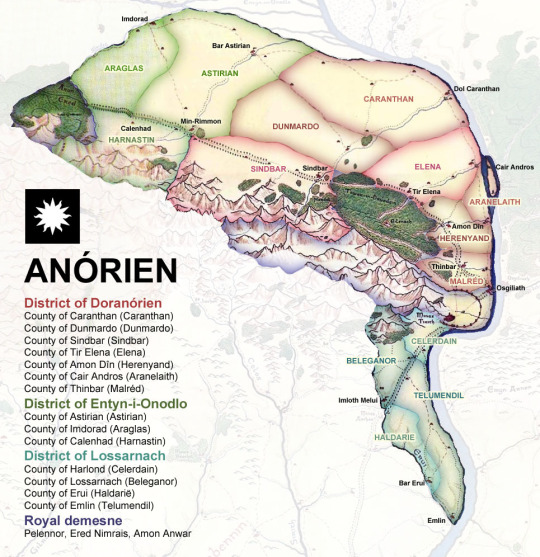
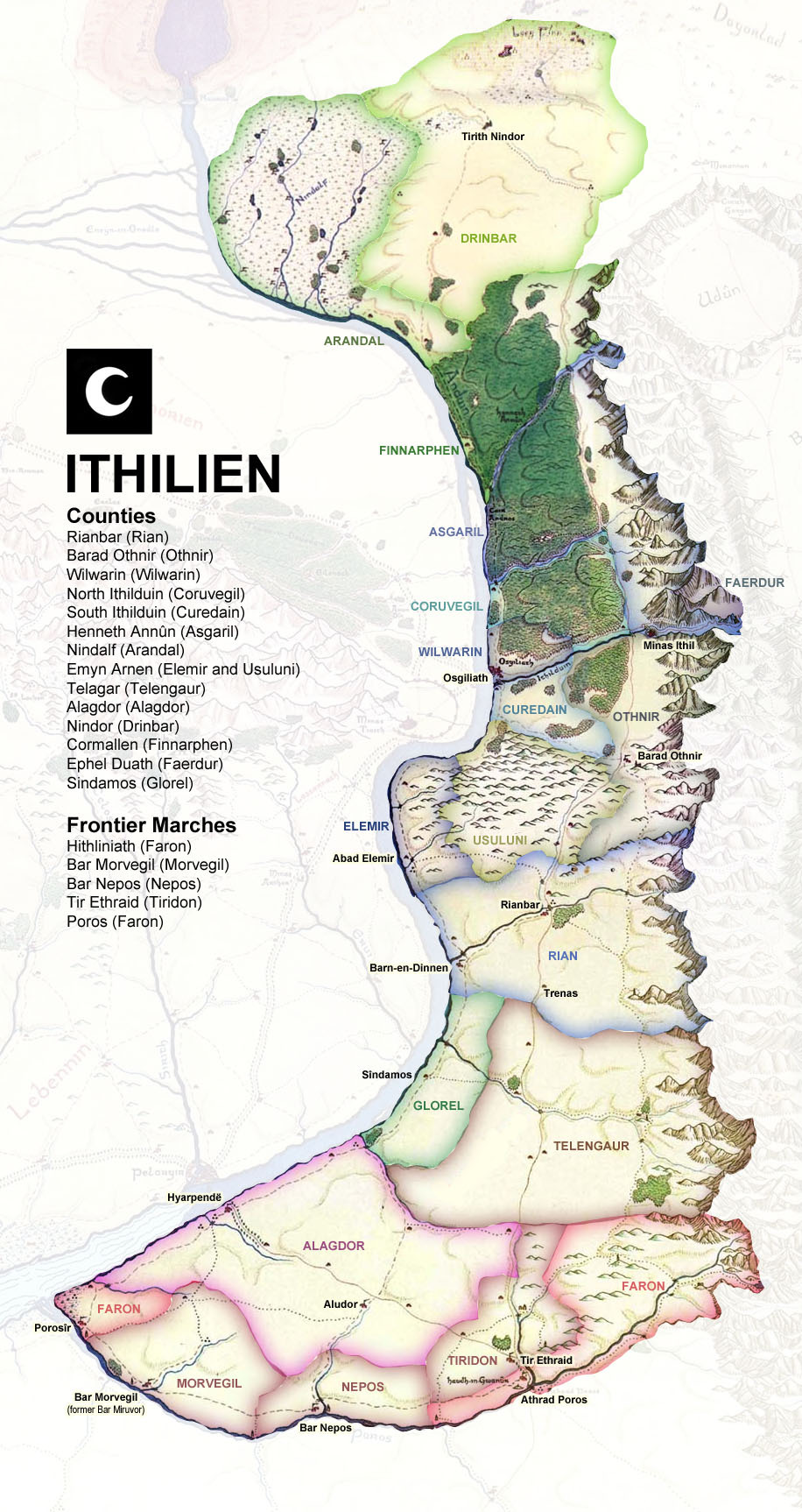


Maps of the provinces of Gondor with the divisions of the landowner houses.
Made by the project Lindëfirion
1K notes
·
View notes
Text
Words to describe facial expressions
Absent: preoccupied
Agonized: as if in pain or tormented
Alluring: attractive, in the sense of arousing desire
Appealing: attractive, in the sense of encouraging goodwill and/or interest
Beatific: blissful
Black: angry or sad, or hostile
Bleak: hopeless
Blinking: surprise, or lack of concern
Blithe: carefree, lighthearted, or heedlessly indifferent
Brooding: anxious and gloomy
Bug eyed: frightened or surprised
Chagrined: humiliated or disappointed
Cheeky: cocky, insolent
Cheerless: sad
Choleric: hot-tempered, irate
Darkly: with depressed or malevolent feelings
Deadpan: expressionless, to conceal emotion or heighten humor
Despondent: depressed or discouraged
Doleful: sad or afflicted
Dour: stern or obstinate
Dreamy: distracted by daydreaming or fantasizing
Ecstatic: delighted or entranced
Faint: cowardly, weak, or barely perceptible
Fixed: concentrated or immobile
Gazing: staring intently
Glancing: staring briefly as if curious but evasive
Glazed: expressionless due to fatigue or confusion
Grim: fatalistic or pessimistic
Grave: serious, expressing emotion due to loss or sadness
Haunted: frightened, worried, or guilty
Hopeless: depressed by a lack of encouragement or optimism
Hostile: aggressively angry, intimidating, or resistant
Hunted: tense as if worried about pursuit
Jeering: insulting or mocking
Languid: lazy or weak
Leering: sexually suggestive
Mild: easygoing
Mischievous: annoyingly or maliciously playful
Pained: affected with discomfort or pain
Peering: with curiosity or suspicion
Peeved: annoyed
Pleading: seeking apology or assistance
Quizzical: questioning or confused
Radiant: bright, happy
Sanguine: bloodthirsty, confident
Sardonic: mocking
Sour: unpleasant
Sullen: resentful
Vacant: blank or stupid looking
Wan: pale, sickly
Wary: cautious or cunning
Wide eyed: frightened or surprised
Withering: devastating
Wrathful: indignant or vengeful
Wry: twisted or crooked to express cleverness or a dark or ironic feeling
104K notes
·
View notes
Text
This totally happened on the Republic cruiser that brought the Jedi Council and Supreme Chancellor to Naboo.
Yoda on the ship to Naboo at the end of TPM: Seen Yaddle, has anyone?
Palpatine:

162 notes
·
View notes
Text
I just think it would have been really funny for Dooku to have fallen into a coma right toward the end of the Clone Wars, and when the war ended abruptly, have had one of his assorted underlings hide his medical stasis pod somewhere so the new Empire can’t find him
and then be woken up decades later by this teacherless young Jedi, Luke Skywalker, who, due to the state of education in the Outer Rim (especially under the Empire), has no clue who Dooku was
Luke, who immediately clocks the cool lightsaber and Force use and thinks that he’s finally found a Jedi, and starts begging for Dooku to teach him
Dooku, of course, takes one look at the Empire that his Sith Master has built and the new apprentice who’s taken his place, and metaphorically shoves the bled crystal of his lightsaber into a closet and says oh of course, Jedi, that’s me, I’ll teach you
by this point, Obi-Wan’s trying to tear out his ghostly hair in indignation; Qui-Gon, on the other hand, thinks that this is the best entertainment he’s had since he died
no one left alive in the Rebellion knows that Dooku was anything other than a former Jedi who became a political leader for the Separatists, and as far as they’re concerned, having organized a resistance against Palpatine even before he declared himself Emperor is all the qualifications they need to accept him with open arms
of course, Luke immediately introduces his new teacher to Leia, one of his best friends and a fellow former politician
and now Dooku has to live with the knowledge that not only did Skywalker have a son, he ALSO has a daughter, now he has to figure out how to teach TWO of them at the same time
4K notes
·
View notes
Text
I think something to bear in mind about Tales of the Jedi episodes "Justice", "Choices" and "The Sith Lord" is that they're seen through Dooku's point-of-view.
And Dooku is an unreliable narrator. He *embellishes* events to fit his own rationalization.
In The Clone Wars Season 6, when talking about Sifo-Dyas, who witnesses confirmed Dooku killed/had assassinated, Dooku says "Sifo-Dyas understood, that is why he helped me!"
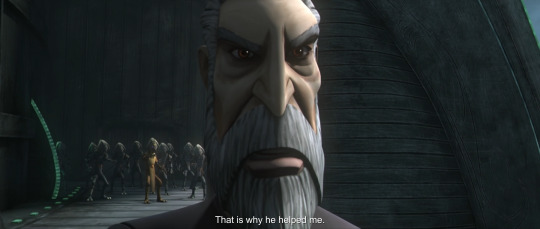
No, Dooku. He didn't. You murdered him, then stole his credentials.
And most of Dooku: Jedi Lost is basically Asajj making up her own mind of him based on Dooku's *likely altered* recounting of the facts... and these three short stories are pretty much the same thing.
Dooku is essentially bullshitting himself.
"I think the audience needs to understand that [Dooku] was a Jedi and a good person and he starts out trying to do the right thing. And often when we’re trying to do the right thing and we take it to extremes, we don’t realize it. Suddenly you’re on the wrong side of things, and then it gets harder and harder. "Once you start down the dark path, forever will it dominate your destiny" is as simple as saying when you lie, it gets harder to tell the truth. You tell one lie, another lie, another lie…"
- Dave Filoni, Nerdist, 2022
My headcanon is that these episodes are the "tale" Dooku told himself to rationalize his dark deeds. They're the lie he repeated, over and over, until he finally believed it.
It's why a complex character like Mace Windu is portrayed as a one-dimensional "teacher's pet/stickler for the rules". That's how Dooku sees him, a drone for the Council.
Conversely, when Dooku says "I've been warning them about the incoming Darkness"...

... dude, you're an accomplice of the incoming Darkness! You were working with the incoming Darkness for years before your old Padawan became a victim of it and you're still helping it now!
Like, I gotta question whether Yaddle even said "you were right" or if that's Dooku's warped perspective acting up.
At some point, he'll stop lying to himself and just unabashedly accept he's a monster... but, clearly, not at this stage in his life, beside the occasional moment of clarity, as seen in "The Sith Lord".
1K notes
·
View notes
Text
People always take cooks for granted. All human beings require food to survive and live.
Of all the characters on Downton Abbey, I feel that Mrs. Patmore gets taken for granted far too much.
Beryl Patmore is a strong, dedicated, caring woman. She loved Daisy like a daughter and cared for William almost like a son. She helped feed wounded veterans during the war, taught Alfred how to cook, helped Mr. Mason in his old age.
Without Mrs. Patmore and her excellent cooking, all of Downton would starve. She is an integral and essential part of the Abbey’s staff and she deserves to recognized for it.
16 notes
·
View notes
Photo
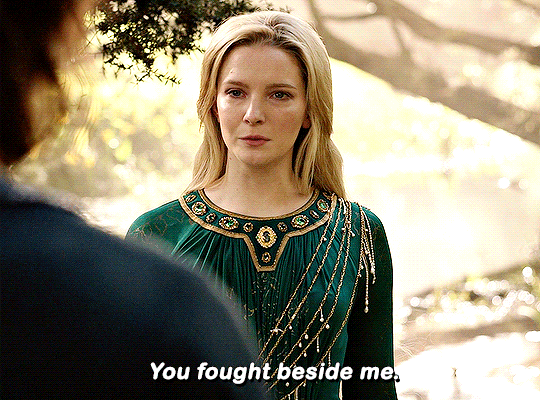

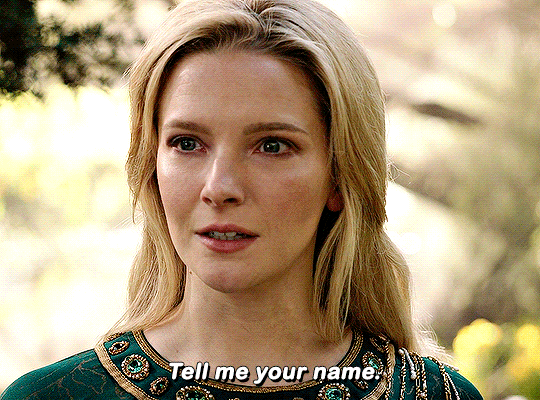
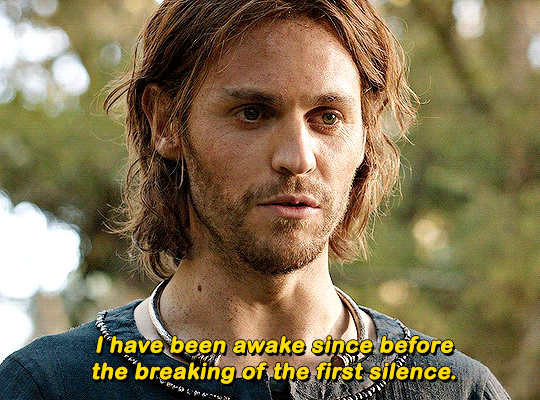
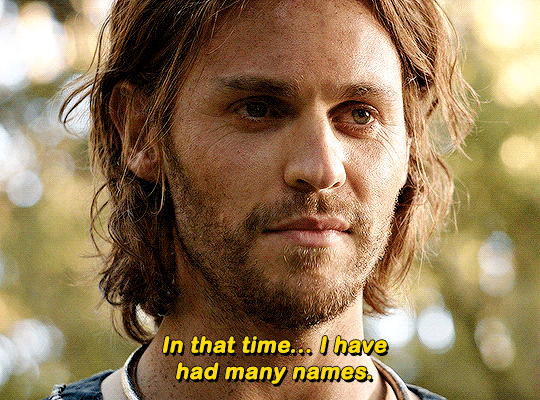
THE LORD OF THE RINGS: The Rings of Power
1x08: Alloyed
2022 - | dir. Wayne Che Yip
3K notes
·
View notes
Text
This is why I do not mourn the death of the Queen. The British Monarchy has much to answer for and the sooner it fades away completely, the better.
From Whale Whisperer on Instagram.
https://instagram.com/whale_whisperer_?igshid=YmMyMTA2M2Y=
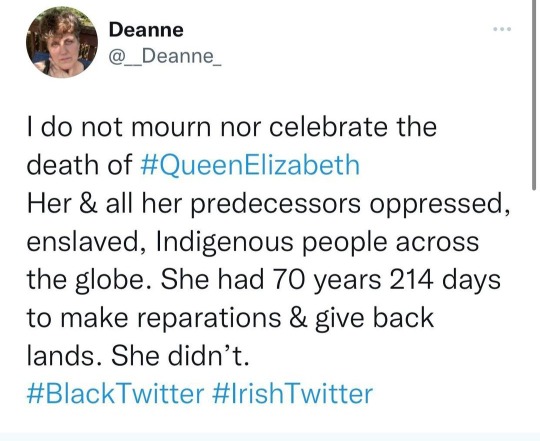
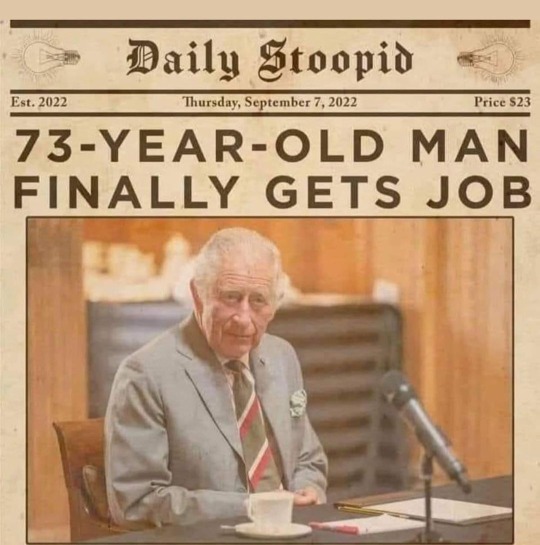

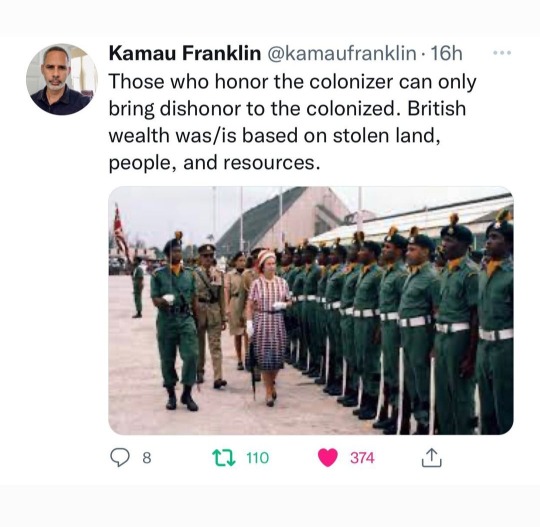

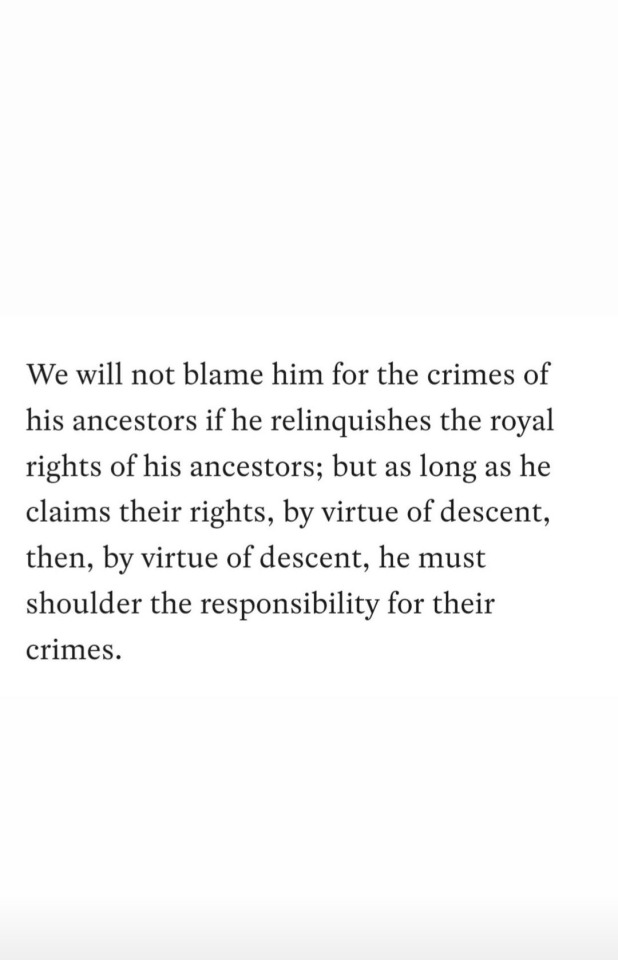



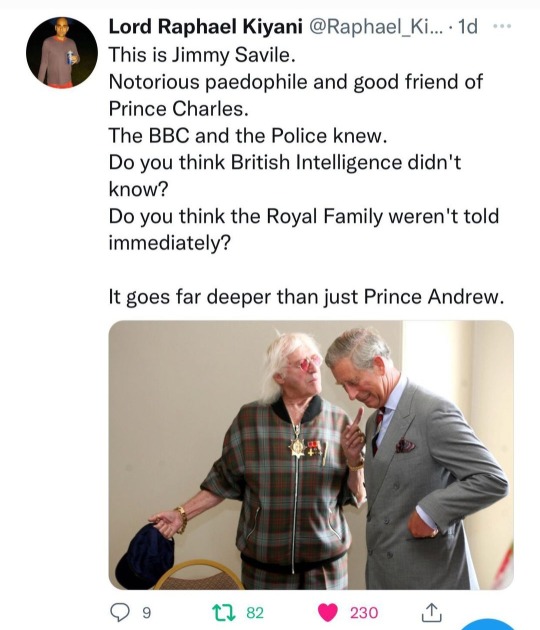
Psst. See them pull millions - if not a billion - pounds from nowhere for this funeral.
NHS? Cost of living crisis? The everyday person will suffer. I'm behind ye all the way. I think I would not be the only Irish person who will also stand behind you to get those fucks out of the position they have.
That died with the Queen. Do with them like the rest of the world. Only royal I like is that King with the funky hats
26K notes
·
View notes
Photo

Read the article HERE or below the cut
Keep reading
671 notes
·
View notes